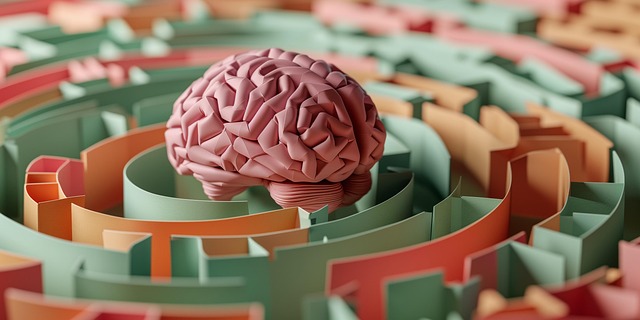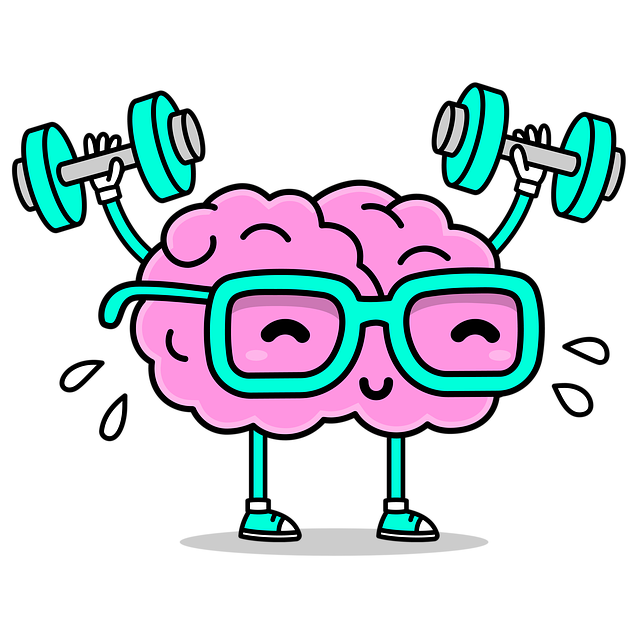Adult ADHD assessment is a multifaceted process that leverages structured interviews, questionnaires, and medical history reviews to identify subtle neurodevelopmental challenges in adulthood. Empathy plays a crucial role by helping healthcare professionals understand how symptoms manifest in specific areas of life, fostering trust and encouraging accurate disclosures. Modern assessment methods, including structured clinical interviews and digital tools, offer more dynamic evaluations leading to precise diagnoses and personalized treatment plans. A supportive environment with clear instructions, task simplification, and tailored accommodations improves diagnosis accuracy and patient satisfaction, ultimately enhancing outcomes for adults with ADHD.
In many cases, ADHD symptoms persist into adulthood, impacting daily life and relationships. Accurate adult ADHD assessment is crucial for effective treatment and improved well-being. This comprehensive guide explores the landscape of adult ADHD assessment, delving into symptoms, diagnosis, and the pivotal role empathy plays in the process. We dissect traditional methods, highlight modern advancements, and emphasize creating a supportive environment. Additionally, we navigate post-assessment steps, offering care plans for optimal management.
- Understanding Adult ADHD: Symptoms and Diagnosis
- The Importance of Empathy in Assessment
- Traditional vs. Modern Assessment Methods
- Creating a Supportive Environment for Evaluation
- Post-Assessment: Next Steps and Care Plans
Understanding Adult ADHD: Symptoms and Diagnosis

Adult ADHD, or Attention Deficit Hyperactivity Disorder, is a neurodevelopmental condition that often presents unique challenges for those affected. Unlike childhood ADHD, adult symptoms can be more subtle and may manifest differently across various aspects of daily life. Common signs include difficulty with organization, time management, restlessness, impulsivity, and focus problems, which can impact work performance, relationships, and overall well-being.
Accurate assessment is crucial for an effective adult ADHD diagnosis. Healthcare professionals use comprehensive evaluations that may involve structured interviews, behavioral questionnaires, and medical history reviews to identify these symptoms. The process often includes a thorough exploration of the individual’s childhood history, current lifestyle, and any co-occurring conditions, ensuring a nuanced understanding of the patient’s experiences. This empathetic approach to adult ADHD assessment is vital for providing appropriate care and support tailored to the unique needs of adults with this condition.
The Importance of Empathy in Assessment

In the realm of adult ADHD assessment, empathy plays a pivotal role in ensuring accurate diagnosis and effective treatment. It is crucial for healthcare professionals to approach each individual with understanding and compassion, recognizing that ADHD presents differently in adulthood than it does in childhood. Many adults struggling with ADHD have often gone undiagnosed since their symptoms manifest as challenges in specific aspects of life rather than across multiple settings, a common sign in children. Empathy allows assessors to listen actively, understand the unique experiences and struggles of the individual, and interpret their symptoms within the context of their personal history and current circumstances.
This empathetic care is particularly vital as it fosters trust between the patient and the assessor. Adults with ADHD often face stigma and may have had past negative experiences in healthcare settings. A non-judgmental, empathetic approach can make them feel more comfortable opening up about their struggles, leading to more accurate and comprehensive assessments. By acknowledging the complexity of adult ADHD and the range of presenting symptoms, assessors can provide tailored support and guidance, enabling individuals to better navigate their challenges and improve their quality of life.
Traditional vs. Modern Assessment Methods

In the past, adult ADHD assessment relied heavily on traditional methods, often involving lengthy questionnaires and clinical interviews. These approaches, while useful, can be limiting as they may not always capture the complexity of symptoms presented by adults with ADHD. They also tend to focus on a one-size-fits-all approach, which doesn’t account for individual differences in experience and expression of ADHD traits.
Modern assessment methods, however, have evolved to incorporate more dynamic and comprehensive techniques. These include structured clinical interviews, standardized psychological tests tailored to adult ADHD, and even digital assessments that offer greater accessibility and flexibility. By leveraging these modern tools, healthcare professionals can gain a deeper understanding of an individual’s unique presentation of symptoms, leading to more accurate diagnoses and personalized treatment plans for effective adult ADHD assessment.
Creating a Supportive Environment for Evaluation

Creating a supportive environment is paramount during an adult ADHD assessment. This involves establishing a safe, non-judgmental space where individuals feel comfortable expressing their experiences and concerns openly. The evaluation process should be conducted in a private setting, ensuring confidentiality and fostering trust between the patient and evaluator. A warm and empathetic approach from the care provider can significantly impact the assessment’s outcome, encouraging honest self-reporting and promoting a positive perception of seeking help.
The environment should also accommodate the unique needs of individuals with ADHD. This may include providing clear instructions, breaking down complex tasks, offering breaks during assessments, and using visual aids or technology to enhance focus and engagement. By tailoring the evaluation process to be more inclusive and less intimidating, healthcare professionals can ensure accurate diagnoses and improve patient satisfaction, ultimately leading to better outcomes in adult ADHD assessment and treatment.
Post-Assessment: Next Steps and Care Plans

After an accurate adult ADHD assessment, the next crucial step is to develop a comprehensive care plan tailored to the individual’s unique needs. This involves a collaborative effort between the patient and healthcare provider, where treatment options are discussed, considered, and selected. Care plans may include a combination of evidence-based treatments such as psychotherapy, cognitive behavioural therapy (CBT), medication management, or lifestyle adjustments.
The plan should be dynamic, allowing for regular review and adjustments as the individual’s symptoms evolve. It is essential to maintain open communication channels to ensure the patient feels heard, understood, and supported throughout their journey towards better mental health. This ongoing care fosters a sense of empowerment, enabling adults with ADHD to navigate their daily lives more effectively and achieve their full potential.
Accurate adult ADHD assessment is enhanced by incorporating empathetic care, ensuring a supportive environment, and utilizing modern methods. By understanding the unique challenges of adults with ADHD and fostering an atmosphere of compassion, professionals can improve diagnostic accuracy and create personalized care plans. This holistic approach to adult ADHD assessment sets the stage for successful treatment and improved quality of life.
